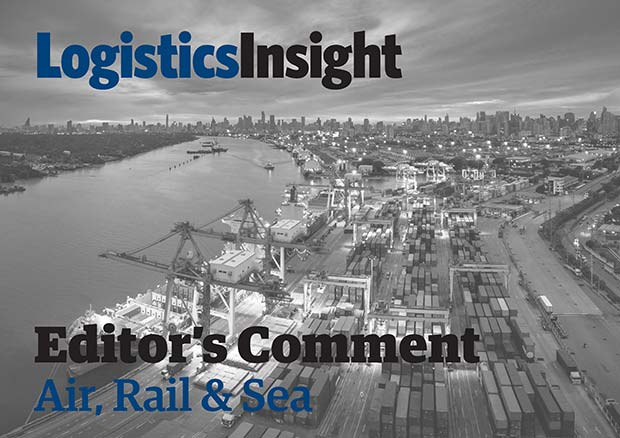Around 95% of the nation’s trade enters or leaves the UK via the sea. Port operators represent some of the biggest investors in UK infrastructure in recent years, constantly increasing and upgrading to allow for growth and changes in trading trends. Many ports have available land space to accommodate new manufacturers, distributors and research and development centres which all could benefit from the close access to international supplies and markets that ports can provide. Creating tax incentives for would-be investors in future industries to locate on vacant land inside a Freeport area could create exactly the business-friendly environment that will make the UK competitive on the world stage. Air cargo accounts for 30% of global trade while the rail network is still essential for carrying goods all over the UK.
This article was first published in the October 2021 issue of Logistics Insight, subscribe to the magazine by clicking here.
 The Port of Tyne now operates a Net Zero Port Centric Warehouse, run entirely using clean energy from renewable sources. Warehouse 21 is used by a wide range of the Port’s 3PL customers, including many household brand names. All internal materials handling within the warehouse is conducted using electric vehicles powered through renewable sources and the lighting within the facility is provided by energy efficient LEDs.
The Port of Tyne now operates a Net Zero Port Centric Warehouse, run entirely using clean energy from renewable sources. Warehouse 21 is used by a wide range of the Port’s 3PL customers, including many household brand names. All internal materials handling within the warehouse is conducted using electric vehicles powered through renewable sources and the lighting within the facility is provided by energy efficient LEDs.
PD Ports, the Statutory Harbour Authority for the River Tees, has successfully rolled out a Port Community System (PCS) to improve efficiencies and boost the international competitiveness of Teesport and the River Tees. After announcing its intentions to deliver on the digitalised solution earlier this year, PD Ports has continued to work alongside partners at Europe’s largest port, the Port of Rotterdam, to implement the PCS to support future trade growth on the River Tees. The system, which provides users with a single, dynamic source of vital information including live shipping movements and weather data, has been incredibly well received with over 200 active users registered in just four weeks.
FedEx Express, a subsidiary of FedEx Corp. and one of the world’s largest express transportation companies, has announced the launch of a new intercontinental flight between Europe and Japan, giving customers improved direct connectivity to the country and additional capacity to Japan and Northern China. The flight, operated by a Boeing 777, adds approximately 440,000 pounds of additional capacity per week. It departs from Charles-de-Gaulle Airport in Paris, France, and flies four times per week directly to Kansai International Airport in Osaka, Japan.
The development of a major new low carbon, multi-modal rail freight facility located in the heart of Scotland has taken a significant step forward with the laying of a private rail track to facilitate construction. Once complete, Mossend International Railfreight Park (MIRP) will provide 2.2 million sq ft of logistics space and Scotland’s first 775-metre electric rail terminal. In line with its ambition to set the bar for sustainability, the track laid has been recycled, re-using redundant track from Bedfordshire.
The air, rail and sea sectors have to be admired for maintaining the robust networks that carry the goods we all rely on.
George Simpson
Features Editor




Comments are closed.